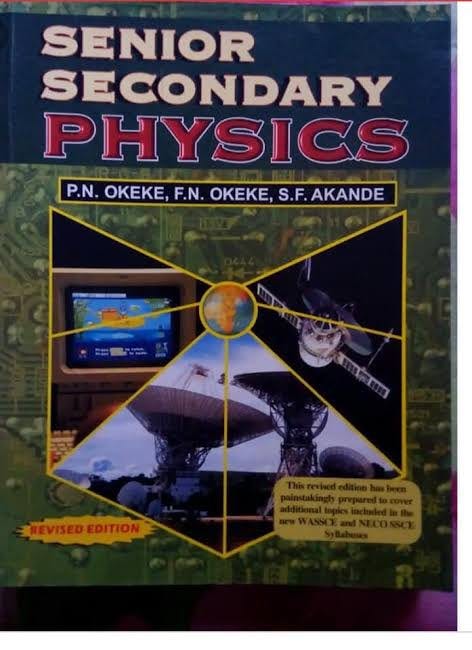Recognizing Contributions: Wole Soyinka and P.N. Okeke in Perspective
Written on
Chapter 1: The Debate Unfolds
A lively discussion has emerged on social media platforms: Should Professor P.N. Okeke, a distinguished physicist and author, receive accolades similar to those bestowed upon the iconic Wole Soyinka? This debate ignited when the CEO of Educare advocated for Okeke, asserting that if Nigeria can celebrate Soyinka, it should also acknowledge Okeke’s substantial contributions to science education. Like many discussions in Nigeria, this one soon became clouded by tribal affiliations, with people rallying around their ethnic identities. However, at its core lies a significant question: What criteria do we use to evaluate greatness?

Chapter 2: Wole Soyinka - A Literary and Political Force
Wole Soyinka is arguably one of Nigeria's most internationally recognized personalities. His Nobel Prize in Literature, awarded in 1986, positioned Nigeria as a prominent cultural entity. Soyinka's influence extends beyond his celebrated plays and poetry; he has been a courageous political advocate, consistently opposing injustice and oppression in Nigeria. His tenacity in the face of tyranny, even leading to imprisonment, has solidified his status as both a literary giant and a moral compass for the nation.
However, many Nigerians may be more familiar with Soyinka through discussions in General Studies courses than through direct engagement with his works. Although his literature is impactful and esteemed, it often remains an elite endeavor, appreciated by a limited audience. For some, Soyinka resembles a distant legend—someone spoken of rather than directly experienced.
Chapter 3: P.N. Okeke - The Unsung Hero of Science
In contrast, Professor P.N. Okeke evokes memories of late-night study sessions filled with Physics formulas for many. If you attended school in Nigeria, chances are you utilized his textbook New School Physics, a foundational resource in West African education since its publication in 1987. Unlike Soyinka, Okeke’s influence is immediate and far-reaching. His writings have influenced generations of students across the continent, serving as their introduction to the scientific realm.
Beyond his textbooks, Okeke has made noteworthy contributions to space science in Nigeria, earning him the title "Father of Astronomical Physics and Space Science." He played a pivotal role in establishing the Centre for Basic Space Science, which laid the groundwork for Nigeria’s engagement in space research. Nevertheless, his name does not enjoy the same level of recognition as Soyinka’s.
Chapter 4: The Core of the Discussion - Who Should Be Honored?
This leads us to a pivotal aspect of the debate: some contend that comparing Okeke to Soyinka diminishes the latter’s achievements. After all, Soyinka’s international recognition and political activism set him apart, don’t they? Conversely, others argue that Okeke’s vast influence on education and science has been equally, if not more, instrumental in transforming the lives of ordinary Nigerians.
Dismissing Okeke as merely a textbook author overlooks the essence of his work. His contributions have reached millions, enlightening students about physics and space science. While his influence might be quieter compared to Soyinka's media presence, it is nonetheless significant. This perhaps highlights a broader issue—Okeke has focused on his academic pursuits without the political connections that often elevate visibility in influential circles.
Soyinka’s accolades are not solely about his literary prowess; they also reflect his political activism. In Nigeria, political presence frequently overshadows academic achievements when it comes to recognition. Okeke, dedicated to scholarship, may lack the political leverage that could elevate his profile nationally.
Chapter 5: The Tribal Divide
As with many discussions in Nigeria, this one quickly devolved into a tribal conflict. Soyinka, representing the southwest, and Okeke from the southeast, became emblematic of deeper regional rivalries. Yet, this tribal viewpoint diverts attention from a crucial issue: How should Nigeria recognize its intellectuals? Should political engagement be a prerequisite for acknowledgment, or should a lifetime of academic contributions suffice?
In truth, both Soyinka and Okeke have made remarkable strides in their respective domains, deserving of recognition. Comparing their contributions is akin to contrasting apples and oranges—literature and science serve different but equally essential roles in national advancement. Instead of pitting them against one another, the discourse should focus on how to honor excellence in Nigeria, irrespective of political stance or tribal identity.
Chapter 6: Advocating for Comprehensive Recognition
Ultimately, the greatness of Nigeria will be reflected in its treatment of its intellectuals and pioneers. While Wole Soyinka’s Nobel Prize serves as a source of national pride, Okeke’s influence on science education and space exploration should equally be celebrated. There is ample opportunity to honor both individuals for their unique contributions to Nigeria and the global community.
So, should P.N. Okeke receive national recognition? Without a doubt. His achievements in education and space science have created a lasting legacy. While Soyinka’s contributions are undeniably significant, Okeke’s impact has perhaps been more directly felt by everyday Nigerians. Both individuals merit national acknowledgment, and it is time we expand our understanding of what it means to contribute to Nigeria’s greatness.